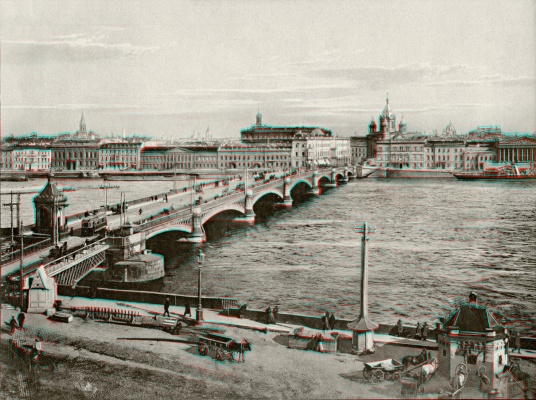The Socialistic propaganda in the army continues, and though I miss no opportunity of impressing on Ministers the disastrous consequences of this subversion of discipline, they appear to be powerless to prevent it. Not only are the relations of officers and men most unsatisfactory, but numbers of the latter are returning home without leave. In some cases they have been prompted to do so by reports of an approach- ing division of the land and by the desire to be on the spot to secure their share of the spoils. I do not wish to be pessimistic, but unless matters improve we shall probably hear of some serious disaster as soon as the Germans decide to take the offensive.
The Russian idea of liberty is to take things easily, to claim double wages, to demonstrate in the streets, and to waste time in talking and in passing resolutions at public meetings. Ministers are working themselves to death, and have the best intentions; but, though I am always being told that their position is becoming stronger, I see no signs of their asserting their authority. The Soviet continues to act as if it were the Government and has been trying to force Ministers to approach the Allied Governments on the subject of peace.
Kerensky, with whom I had a long conversation yesterday, does not favour the idea of taking strong measures at present, either against the Soviet or the Socialist propaganda in the army. On my telling him that the Government would never be masters of the situation so long as they allowed themselves to be dictated to by a rival organization, he said that the Soviet would die a natural death, that the present agitation in the army would pass, and that the army would then be in a better position to help the Allies to win the war than it would have been under the old regime.
Russia, he declared, Mas in favour of what he termed a war of defence, as opposed to a war of aggression, though a military offensive might be neces- sary to secure the objects of such a war. The presence of two great democracies in the war might eventually cause the Allies to modify their ideas about the terms of peace, and he spoke of an ideal peace as one ' that would secure to every nation the right to determine its own destiny.' I told him that the reply which we had returned to President Wilson's note showed that we were not fighting for conquest, but for principles which ought to appeal to Russian democracy. The question as to whether effect was to be given to the Constanti- nople agreement — about which he and Miliukoff held such opposite views — was a question for Russia to decide. Kerensky next spoke of the hopes which he entertained of influencing the German Social Democrats through the Russian Socialists, contending that Russia had brought a new force into the war which, by reacting on the internal situation in Germany, might bring about a durable peace. He admitted, however, that if these hopes proved fallacious we should have to fight on till Germany yielded to the will of Europe.
It is a misfortune that Petrograd is the seat of Government, as at Moscow and in the provinces the situation is more encouraging, and I fancy that the majority of the nation is as sick of their present capital as I am. It is only here in Petrograd, where there are any number of German agents, that attacks have been made on us in the Press of the extreme Labour party. Otherwise, the general feeling of the country towards us is excellent. There was a great demonstra- tion of some four thousand Cossacks before the Embassy a few days ago. The general in command of these regiments had originally asked me to come and review them on the Champ de Mars, and had kindly offered to place a ' quiet ' horse at my disposal. I had to tell him that this was an honour which I, as Ambassador, could not accept, so it was arranged that the regiments should march past the Embassy instead, while I watched them from the balcony. After the march past the commander, with a delegation of some fifty Cossacks, came up to my study and made a patriotic speech in favour of continuing the war.
Last Saturday I and my French and Italian colleagues were invited to attend a performance at the Opera House that had been organized by the regiment which is credited with having made the revolution, on account of its having been the first to side with the people. We sat in one of the Imperial boxes on the grand tier, while the Government were in a box just opposite us. The central box was occupied by revolu- tionaries w^ho had returned, after long years of exile, from Siberia. They included Vera Figner, who was sentenced as an accomplice in the assassination of Alexander II, and Vera Zasoulich, who made an attempt on Trepoff's life in 1877. After paying a visit, in one of the entr^actes, to the Ministers, we were taken to the central box and introduced to its occupants. No one would have conceived such a thing possible a couple of months ago.
We are going to travel through Germany. Whatever happens, happens, but it is clear that Vladimir Ilyich needs to be in Petrograd as soon as possible. After we have already entered the carriage car in order to travel to the Swiss border, a small group of Mensheviks and Socialist-Revolutionaries have staged something like a hostile demonstration. See more


Nicholas and I are allowed to meet only while eating, but not to sleep together.
So, we have started out. We have arrived on a Swiss train into Schaffhausen where we needed to transfer to a German train. German officers were expecting us. They showed us to the customs hall, where they needed to count the number of “live” shells that they were transporting to Russia. According to our deal, they could not ask us for the passports. Thus, at customs women and men were separated on both sides of the table, so that on our way, no one took flight or switched a Russian revolutionary for a German girl and left an embryo of the revolution in Germany. See more
We began to fast. After Mass, Kerensky arrived and ordered the limiting of our encounter, with the children sitting separately; supposedly in order to teach us to keep discipline, the same as Soviet workers and soldiers. We accepted and submitted ourselves to avoid any kind of violence. I took a walk with Tatiana. Olga was better, although she had a sore throat. The rest of us felt fine. At 9:45 I lay down and Tatiana sat with me until 10:30. Then I read for a while and tried to eat, I took a bath and went to sleep.